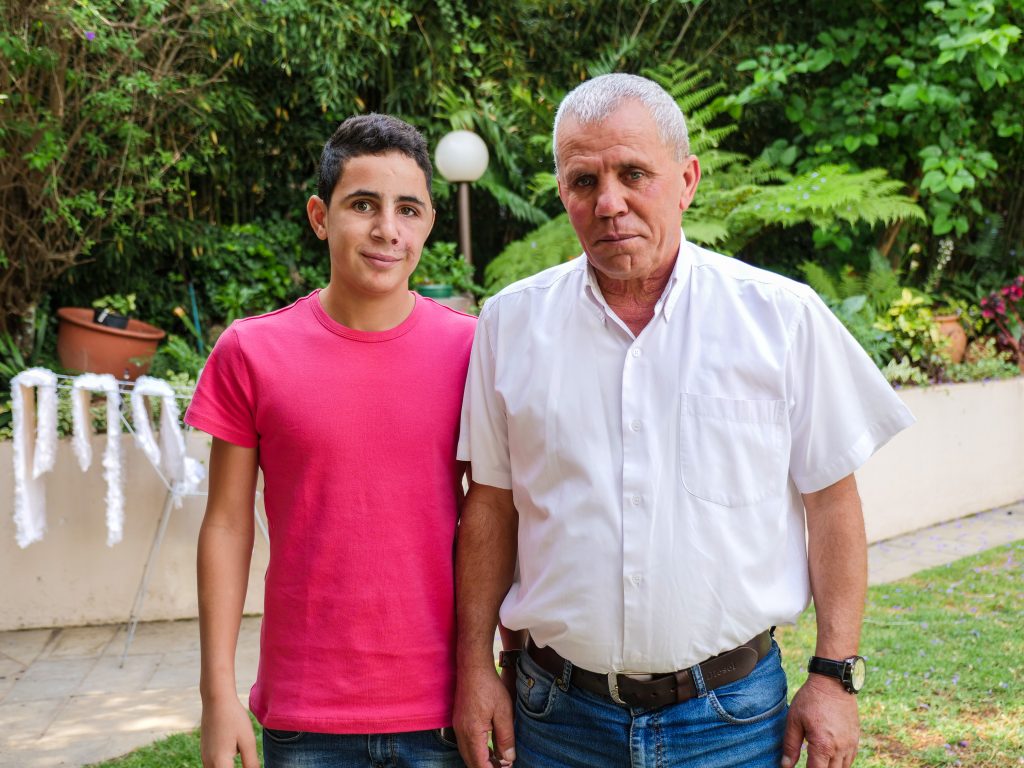Mohammed Tamimi turns 16 today. His favorite football club is Real Madrid and when he’s older he would like to be an accountant to help his father, Fadel, with his taxi business.
Mohammed is like any teenager anywhere but he is also a Palestinian teenager, living in the village of Nabi Saleh north-west of Ramallah in the occupied West Bank. This means, he has been living under Israeli military law his entire life.
Under Israeli military law, children as young as 12 can be arrested and detained. Many of these arrests occur during night raids by armed Israeli soldiers, and minors are held in detention pending prosecution in military courts. The most common offence – stone-throwing – can lead to up to 20 years in prison.
Mohammed has been through this system of military law twice and imprisoned once. The first time he was detained, and the time he was imprisoned, was when he was 14 years old. He was arrested on the grounds of stone-throwing, and jailed for three and a half months.
“I was so scared when Mohammed was arrested,” his father, Fadel, says. Under military law, interrogation of minors must occur with a parent or guardian present, and the interrogation must be filmed. Fadel recalls never seeing a camera or any video of the interrogation of his son.
Following his interrogation, Mohammed was sent to a detention centre in Nabi Saleh. “The prison was full with between 120 and 150 kids there with me,” he says. “Each room had ten beds, but sometimes there would be 12 or 13 of us.”
The cells where the children are kept are seven metres by three metres, and had just a “hole in the ground” to serve as a toilet.
Despite this hostile environment, the disruption to his schooling, the isolation from his family, and the trauma of being imprisoned at 14, Mohammed says he had no fear and that he was not scared.
This strong spirit was what got Mohammed through his near-death experience with Israeli soldiers in 2017. While playing football one afternoon, he peered over a wall to catch a glimpse of Israeli soldiers on patrol, and was shot by a rubber-covered steel bullet at close range.
The bullet shattered the left side of Mohammed’s head and he underwent emergency surgery in Palestine. His vision and hearing were impaired and his family calls his survival a miracle.
While still in recovery, he was arrested again, this time during a night-time raid on his home. With metal pins in his head, Mohammed was detained – “kidnapped at knifepoint” – and forced to say that his injuries were self-inflicted.
Mohammed travelled to South Africa in mid-October this year to undergo a series of reconstructive surgeries conducted by South African surgeons with the support of 2 Suns Shamsaan, an organization that works towards a more just and peaceful world where human rights are enjoyed by all, especially children.
Accompanied by his father, Fadel, and his cousin, Osama – who has also been detained under military law – Mohammed is today celebrating his sixteenth birthday in South Africa, where he is recuperating after surgery.
But it is a bittersweet celebration.
Yes, Mohammed is like many teenagers around the world, playing football, hating early mornings and constantly checking his phone.
But Mohammed, and many other Palestinian teens, are also nothing like other teenagers, growing up in a system of unjust rule and unfair persecution.
And, as we celebrate Mohammed’s birthday today, and the International Day of Solidarity with Palestinian People tomorrow, let’s not forget the Palestinian civilians, including children, unlawfully killed and detained, and let’s keep calling for human rights to be protected.
You can take action for human rights in the Occupied Palestinian Territories here.


